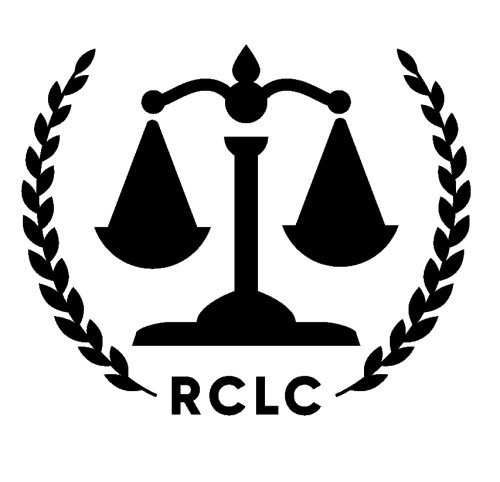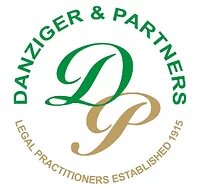Best Sexual Harassment Lawyers in Zimbabwe
Share your needs with us, get contacted by law firms.
Free. Takes 2 min.
Or refine your search by selecting a city:
List of the best lawyers in Zimbabwe
About Sexual Harassment Law in Zimbabwe
Sexual harassment in Zimbabwe is a serious issue that is addressed by a combination of constitutional provisions, labor laws, and various legislative acts. Although the country has made strides in addressing sexual harassment, it remains a prevalent issue in workplaces and other environments. The Constitution of Zimbabwe supports the rights of individuals to dignity and non-discrimination, which serves as a foundational principle against sexual harassment. Various laws and regulations seek to provide robust protections for individuals, predominantly in professional settings, to foster environments free from intimidation and inappropriate conduct.
Why You May Need a Lawyer
Individuals encountering sexual harassment may require legal assistance for several reasons. A lawyer can provide guidance on understanding your rights and the legal definitions of sexual harassment. They can assist with gathering necessary evidence and filing complaints with appropriate authorities. Legal professionals can also represent you in negotiations or court, advocate for appropriate workplace remedies, and help to secure compensation for any harm suffered due to harassment. Seeking legal advice can be crucial during wrongful termination or retaliatory actions following a sexual harassment complaint.
Local Laws Overview
The key local laws relevant to sexual harassment in Zimbabwe include the Labour Act and the Anti-Domestic Violence Act. The Labour Act prohibits any form of discrimination and harassment at the workplace, providing a basis for employees to report sexual harassment incidences. The Anti-Domestic Violence Act, although primarily focused on domestic settings, provides some coverage related to harassment. Furthermore, the Constitution of Zimbabwe enshrines the right to dignity, providing an overarching framework against sexual harassment. Legal reforms are ongoing to strengthen these protections further.
Frequently Asked Questions
What constitutes sexual harassment under Zimbabwean law?
Sexual harassment can include unwelcome sexual advances, requests for sexual favors, and other verbal or physical conduct of a sexual nature that creates an intimidating, hostile, or offensive environment.
What are my rights if I experience sexual harassment at work?
Employees have the right to work in an environment free from discrimination and harassment. You can file a complaint with your employer, or approach relevant labor authorities and seek recourse through legal channels.
Can I be fired for reporting sexual harassment?
Retaliation for reporting sexual harassment is illegal. If you face any form of retaliation, such as wrongful termination, demotion, or discrimination, you can take legal action against your employer.
What evidence do I need to prove sexual harassment?
Collect any form of evidence, such as emails, messages, witness testimonies, and documented incidents, to support your claims of harassment when seeking legal advice or filing a complaint.
Can sexual harassment occur outside the workplace?
Yes, sexual harassment can happen in other environments beyond the workplace, such as academic settings, public places, and online. The legal implications may vary based on the setting.
What role does the police play in sexual harassment cases?
The police can be involved in cases involving physical assault or threats as part of the harassment incident. However, for workplace-specific cases, other regulatory bodies and legal entities are usually more directly involved.
What should I expect during a legal consultation regarding sexual harassment?
During a legal consultation, you will discuss your experience with a lawyer, who will advise you on your rights, available legal options, and potential outcomes of any proceedings.
Are there time limits for filing a complaint of sexual harassment?
Yes, there are generally time limits or statutes of limitation within which you should report or file a complaint. It's essential to act promptly to ensure all legal options remain available to you.
Can I represent myself in a sexual harassment case?
While it's possible to represent yourself, seeking legal advice from a qualified professional is recommended to navigate the complexities of legal processes effectively.
Is mediation an option in sexual harassment cases?
Yes, mediation can be a viable option, especially in workplace settings. It involves a neutral third party to help both sides reach a mutually satisfactory resolution, often without engaging in lengthy legal battles.
Additional Resources
Several resources can offer aid in cases of sexual harassment:
- The Zimbabwe Gender Commission: Provides support and guidance on gender-based harassment issues.
- The Labour Court of Zimbabwe: Handles employment-related disputes, including harassment cases.
- Zimbabwe Women's Lawyers Association (ZWLA): An organization dedicated to providing legal aid and support to women facing legal issues, including sexual harassment.
- The Ministry of Women Affairs, Community, Small and Medium Enterprises Development: Offers resources and support services for gender-based issues.
Next Steps
If you require legal assistance related to sexual harassment, consider these steps:
- Document all incidents of harassment, including dates, times, and any witnesses.
- Contact a lawyer experienced in sexual harassment cases who can advise you of your rights.
- File a formal complaint with your employer or relevant authorities like the Labour Court.
- Engage with local support networks or organizations for emotional and legal support.
- Educate yourself on your rights and the existing legal frameworks to better advocate for yourself.
Lawzana helps you find the best lawyers and law firms in Zimbabwe through a curated and pre-screened list of qualified legal professionals. Our platform offers rankings and detailed profiles of attorneys and law firms, allowing you to compare based on practice areas, including Sexual Harassment, experience, and client feedback.
Each profile includes a description of the firm's areas of practice, client reviews, team members and partners, year of establishment, spoken languages, office locations, contact information, social media presence, and any published articles or resources. Most firms on our platform speak English and are experienced in both local and international legal matters.
Get a quote from top-rated law firms in Zimbabwe — quickly, securely, and without unnecessary hassle.
Disclaimer:
The information provided on this page is for general informational purposes only and does not constitute legal advice. While we strive to ensure the accuracy and relevance of the content, legal information may change over time, and interpretations of the law can vary. You should always consult with a qualified legal professional for advice specific to your situation.
We disclaim all liability for actions taken or not taken based on the content of this page. If you believe any information is incorrect or outdated, please contact us, and we will review and update it where appropriate.
Browse sexual harassment law firms by city in Zimbabwe
Refine your search by selecting a city.
















